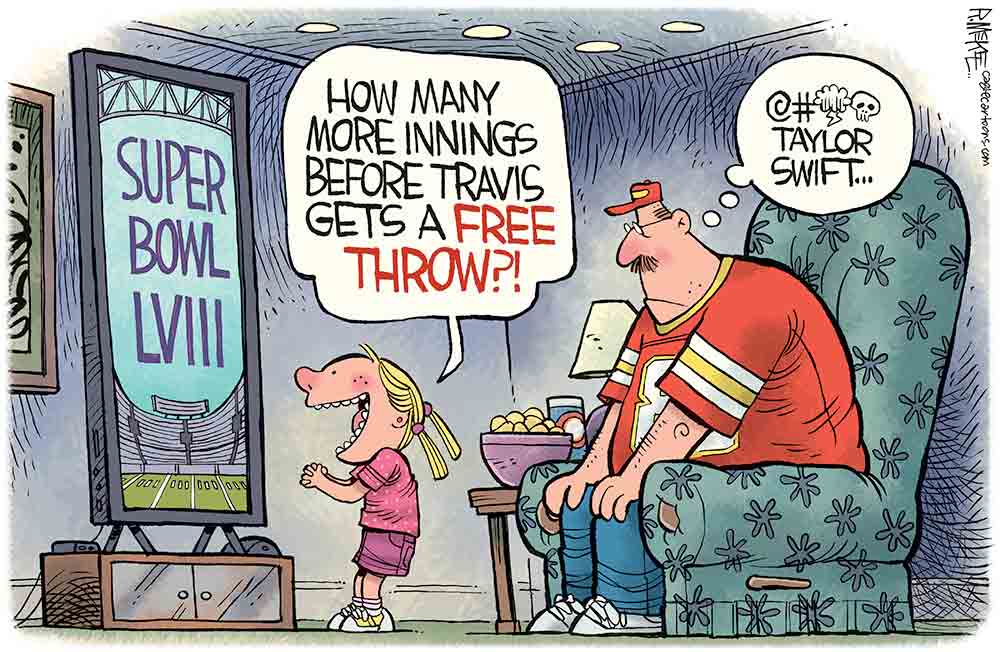School voucher opponents unpopular with GOP primary voters, poll finds

By Ikram Mohamen
Texas Tribune
A new poll indicates that more than half of Texas GOP primary voters are displeased with members of the state House who voted against school vouchers last year.
Sixty percent of Texas Republican primary voters told pollsters that they’d be less likely to vote this March for a state House member who opposed vouchers in 2023’s marathon of legislative sessions. Meanwhile, just 16% they’d be less likely to support incumbents who voted for vouchers.
The survey, released Tuesday by the Hobby School of Public Affairs at the University of Houston, indicates that the ongoing debate over “school choice” is weighing heavily on GOP primary voters’ minds.
Gov. Greg Abbott made creating a way for parents to use state dollars to pay for private school tuition or home-schooling expenses his top legislative priority in 2023. But various proposals were rejected by the House after a coalition of mostly rural Republicans banded together with Democrats to block the proposal.
Abbott and his allies on the issue said the idea was a matter of parental rights, one that would allow them to pull their kids out of schools they felt were failing or promoting a “woke” agenda. Opponents of vouchers said they would strip already-underfunded public schools of much-needed cash.
After attempts to push through a voucher plan repeatedly failed last year, Abbott set his sights on the 2024 elections and endorsed primary opponents of many of the “no” votes on vouchers. The Hobby School poll suggested that Abbott has the potential to be influential this March: 64% of GOP primary voters said, all other things equal, they’d be more likely to vote for a candidate endorsed by Abbott. That was the second highest number among politicians polls, behind only Donald Trump at 70%.
Meanwhile, the leader of the Texas House, Speaker Dade Phelan, ranked the lowest among political figures endorsement net effect. Only 9% of voters said they’d be more likely to vote for someone who had his endorsement, compared to 23% saying they’d be less likely. Sixty-eight percent said his endorsement would have no effect.
Some Republicans, including Trump and Attorney General Ken Paxton, are pushing for Phelan to be voted out. Phelan and his allies are targets of the GOP’s hard right because of the failure of vouchers, but also because Phelan presided over the impeachment of Paxton on allegations of corruption.
Forty-six percent of primary voters said they’d be less likely to vote for an incumbent House representative who cast a vote in favor of Paxton’s impeachment. Twenty-three percent of GOP primary voters said they’d be more likely to support an incumbent who voted to impeach. The survey also mentioned the public policies supported among GOP primary voters.
The poll was conducted via an online survey of 1,500 respondents from Jan. 11 to Jan. 24. The confidence interval was plus or minus 2.5%.
Amid ongoing disputes between Texas and the federal government over border security measures, including the deployment of concertina wire and construction of barriers along the border, public opinion in Texas remains significantly in favor of aggressive border security measures. An overwhelming 87% of primary voters support spending $3 billion annually on border security, while 89% support empowering Texas law enforcement to arrest undocumented immigrants.
A majority of Republican primary voters also support other various policies including the current Texas ban on abortions unless the mother’s life is at risk (64%) and legislation requiring Texans to be at least 21 to purchase an AR-15 style assault rifle (68%).
The poll was conducted via an online survey of 1,500 respondents from Jan. 11 to Jan. 24. The confidence interval was plus or minus 2.5%.
- Hits: 823




 By Chris Edwards
By Chris Edwards By Tony Farkas
By Tony Farkas By Tom Purcell
By Tom Purcell